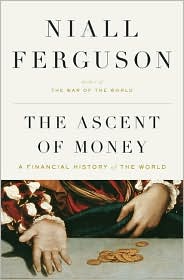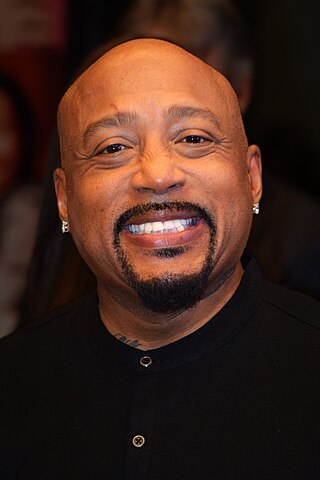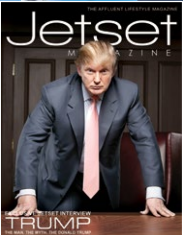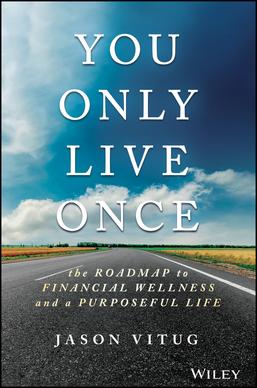Finance is the study and discipline of money, currency and capital assets. It is related to but distinct from economics, which is the study of the production, distribution, and consumption of goods and services. Based on the scope of financial activities in financial systems, the discipline can be divided into personal, corporate, and public finance.

A financial market is a market in which people trade financial securities and derivatives at low transaction costs. Some of the securities include stocks and bonds, raw materials and precious metals, which are known in the financial markets as commodities.

Personal finance is the financial management that an individual or a family unit performs to budget, save, and spend monetary resources in a controlled manner, taking into account various financial risks and future life events.

Robert Toru Kiyosaki is an American businessman and author, known for the Rich Dad Poor Dad series of personal finance books. He is the founder of the Rich Dad Company, a private financial education company that provides personal finance and business education to people through books and videos, and Rich Global LLC, which filed for bankruptcy in 2012.

Sharon L. Lechter is an American accountant, author, and businesswoman. She is the co-author of Rich Dad Poor Dad, and the founder and CEO of Pay Your Family First, a financial education organization.

The Richest Man in Babylon is a 1926 book by George S. Clason that dispenses financial advice through a collection of parables set 4,097 years earlier, in ancient Babylon. The book remains in print almost a century after the parables were originally published, and is regarded as a classic of personal financial advice.
Charles J. Givens was a bestselling author of three books, Wealth Without Risk and Financial Self Defense and More Wealth Without Risk. Givens founded the Charles J. Givens Organization that grew to over 600,000 members. He frequently appeared on nationally syndicated daytime television shows to promote his "financial strategies" and hosted a weekly radio program with self named "Christian Financial Planner" James L. Paris. At his peak Givens extravagant lifestyle was profiled on the popular television program Lifestyles of the Rich and Famous. His organization collapsed after a number of lawsuits, and regulatory investigations of investments sold by Paris, central Florida radio personality Jack Dicks, and former vacuum cleaner salesman Charles C Smith Jr.
Dominique Lyone is an Australian entrepreneur. He is the Chairman and Founder of COS; Australia’s largest family owned B2B supplier of office products.
Diane Kennedy is an American CPA, speaker, and financial writer. She is the author of The Wall Street Journal and Business Week bestsellers, Loopholes of the Rich and Real Estate Loopholes as well as The Insider's Guide to Real Estate Investing Loopholes, Tax Loopholes for eBay Sellers, and Smart Business Stupid Business.

The Ascent of Money: A Financial History of the World is a 2008 book by then-Harvard professor Niall Ferguson, and an adapted television documentary for Channel 4 (UK) and PBS (US), which in 2009 won an International Emmy Award. It examines the long history of money, credit, and banking.

Daymond Garfield John is an American businessman, investor, and television personality. He is best known as an investor on the ABC reality television series Shark Tank. As well as being the founder, president, and chief executive officer of FUBU, and Based in New York City, John is the founder of The Shark Group.
Resistance is a concept created by American novelist Steven Pressfield that illustrates the universal force that he claims acts against human creativity. It was first described in his non-fiction book The War of Art and elaborated in the follow-up books Do The Work and Turning Pro, and in other essays. It is also a recurring theme in some of his fiction novels such as The Legend of Bagger Vance and The Virtues of War.
Robo-advisors or robo-advisers are a class of financial adviser that provide financial advice and investment management online with moderate to minimal human intervention. They provide digital financial advice based on mathematical rules or algorithms. These algorithms are designed by financial advisors, investment managers and data scientists, and coded in software by programmers. These algorithms are executed by software and do not require a human advisor to impart financial advice to a client. The software utilizes its algorithms to automatically allocate, manage and optimize clients' assets for either short-run or long-run investment. Robo-advisors are categorized based on the extent of personalization, discretion, involvement, and human interaction.

Jetset Magazine is an American lifestyle magazine founded in 2006, aimed at those with an affluent lifestyle. It is available as a quarterly print magazine and is distributed in private jets, private yachts, private jet terminals, yacht charters, exclusive resorts and events around the world. It is also available online with content created on a weekly basis.

You Only Live Once: The Roadmap to Financial Wellness and a Purposeful Life is a 2016 book written by Jason Vitug. The book sets to redefine the YOLO mantra that has been used to define Generation Y or millennials, to set a mindset shift to cultivate a healthy and wealthy lifestyle for a lifetime. The book focuses on a three step process called ACT, an acronym for awareness, creating a plan, and taking control steps, outlined by the author. The books aim is to make readers define the life they want to live before setting financial goals. You Only Live Once: The Roadmap to Financial Wellness and a Purposeful Life is written in a simple conversation tone based on Vitug's financial experiences and conversations with others

Think Big and Kick Ass: In Business and in Life is a non-fiction book by Donald Trump, then head of The Trump Organization and later President of the United States, and Bill Zanker, The Learning Annex entrepreneur, first published in hardcover in 2007 by HarperCollins. Another edition was subsequently published in paperback in 2008 under the title Think Big: Make It Happen in Business and Life. Trump and Zanker had prior business ventures together before writing the book; Zanker's company helped gain Trump speaking engagements around the world with large audiences.

Why We Want You to Be Rich: Two Men, One Message is a non-fiction book about personal finance, co-authored by Donald Trump and Robert Kiyosaki. The book was first published in hardcover format in 2006. The coauthors became familiar with each other through mutual work at The Learning Annex and Trump being impressed by Kiyosaki's writing success with Rich Dad Poor Dad. Trump and Kiyosaki co-authored another book together in 2011, Midas Touch: Why Some Entrepreneurs Get Rich-And Why Most Don't. The book discusses American economic problems including the middle-class squeeze, economic globalization, and the national debt of the United States. The authors advise the reader to gain financial literacy and delve into entrepreneurship. Trump and Kiyosaki criticize mutual funds and advocate real estate investing as a way to build wealth.

Midas Touch: Why Some Entrepreneurs Get Rich — And Why Most Don't is a non-fiction book about personal finance, co-authored by Donald Trump and Robert Kiyosaki. The book was published in hardcover format in 2011. The coauthors became familiar with each other through mutual work at The Learning Annex, and The Art of the Deal. Trump was impressed by Kiyosaki's writing success with Rich Dad Poor Dad. The coauthors then wrote Why We Want You to be Rich together in 2006, and followed it up with Midas Touch in 2011.
Engelo Rumora is a real estate executive, investor, and former association football player. He is the CEO and founder of a real estate investment company called Ohio Cashflow located in Toledo, Ohio, US. Rumora is a member of the Forbes Real Estate Council.
Jacob H. Gold is an American financial planner, adjunct professor of finance at Arizona State University, and author.












